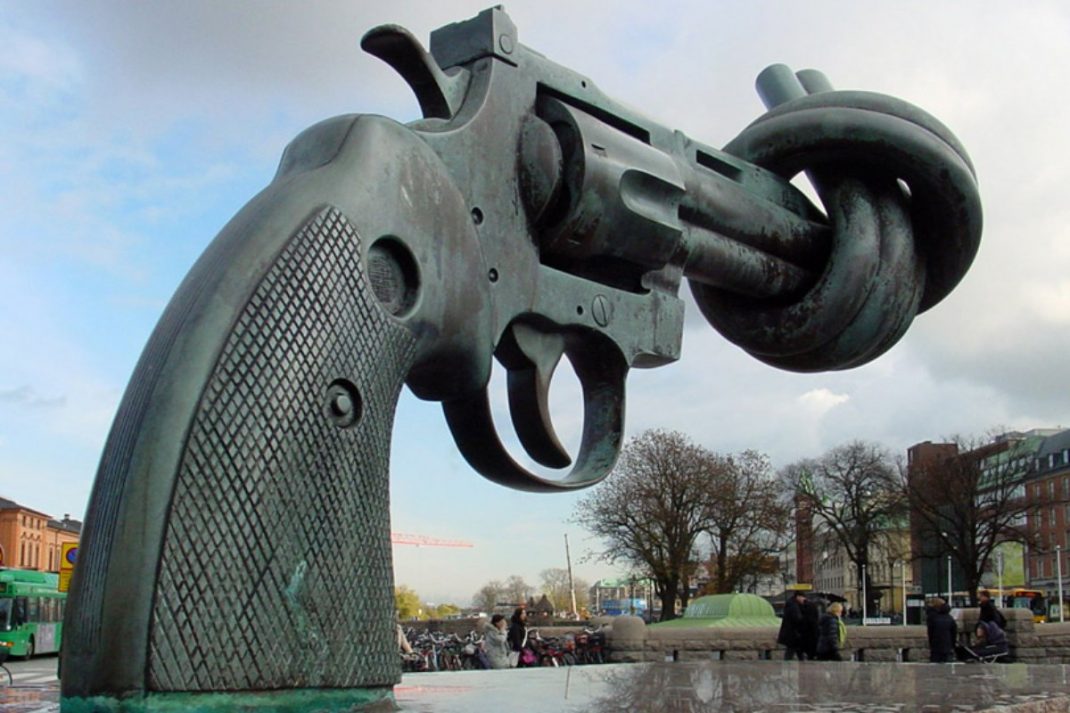By Wolfgang Pusztai
Libya is a country in chaos, with a civil war raging in some parts of it. Several regions are virtually inaccessible for foreigners, many cities are the scene of frequent fighting between militias, while others are ruled by criminal gangs.
But there are exceptions. Most of northern Cyrenaica, Jabal Nafusah mountains in Tripolitania, the city of Misrata and some other regions are by and large stable. In theory, a rather normal life would be possible there.
Misrata, a harbor town with a population of about 280,000, was one of the cities suffering most under Gaddafi’s forces during Libya’s revolution.
Thereafter its fighters did not always play a positive role (e.g. committing the Gharghur massacre in Tripoli in November 2013, where more than 40 civilians were killed and hundreds wounded, or in preventing refugees from neighboring Tawergha from returning home).
In 2016, the Islamic State was defeated in its stronghold Sirte by Operation Bunyan al Marsoos, a military alliance led by Misrata (and not by the Government of National Accord (GNA), as claimed by some). Almost one thousand of the cities’ bravest were killed, about 5,000 wounded.
Today, the situation in Misrata is widely calm and stable, although every now and then, the Islamic State conducts a terrorist attack. In contrary to many other Libyan cities there is no fighting between militias and crime is under control. The city is governed by a local council which was elected in democratic elections.
Misrata is a commercial hub since centuries. Misrata Free Zone (MFZ) was the first free-trade economic zone established in Libya in accordance with Law No. 9/2000.
Under the direct authority of the Ministry of Economy of the GNA, such a Zone can act independently in setting up companies, signing agreements, etc. as long as it doesn’t contradict with state laws, and national security interests (see Article. 5 of Law 9/2000 and Implementing Regulations of Law No. 9. Article 39 and 40).
However, the Revolution brought the development of the Zone to a halt. It was looted. Thereafter only limited progress was achieved until earlier this year.
On February 21, 2018, a development agreement was signed between the chairman of the MFZ, Hussein Ben Hamida, and Mabco Holding, a London-based company, to develop and expand the Free Zone. Plans include construction of an airport, a deep-water sea port terminal and other infrastructure.
On March 8, 2018, iQ Power Inc., an American company, and MFZ have signed a memorandum of understanding for the development of energy projects aimed at increasing MFZ’s energy independence through solar energy.
During the meeting GECOL, Libya’s national energy company, emphasized that they will join and support the efforts to realize the project as this will reduce the hefty subsidy bill, that costs the state around 12 US cents per kWh for electricity supplied to Libyans, which is a burden that affects the state budget.
The realization of these projects would be a win-win situation for the Libyan economy. The MFZ would be less dependent on power supply by GECOL and GECOL’s budget and its energy grid, frequently plagued by power outages, would get a much-sought relief.
Furthermore, Misrata solar power project could become a role model for energy supply of other Libyan cities, in particular in more remote regions of the country.
The international recognized government of Libya is aware of these developments. On the same day the MoU was signed, Ahmed Maitiq, Vice President of the Presidential Council, visited the MFZ. He was briefed on the plans and investment projects with regard to the Zone and the region. However, it is decisive for the MFZ, that it is accepted by the other major economic players in Tripolitania. Without their recognition, the zone can’t flourish.
As mentioned at the beginning, in many parts of Libya security is a mess, but the local population in the secure regions must benefit from stability.
Cities like Sirte or Benghazi, heavily affected by mines laid by Islamists and unexploded ordnance while lacking even basic medical care, must be enabled to overcome the destructions and sufferings from previous fighting in order to prevent the return of radical Islamists.
Stable other cities, like Tobruq, Misrata, Zintan or Zuawara, should be rewarded for keeping their town stable by the international community with more practical support and investments to demonstrate the advantages of having a democratic elected local government. Their progress should be an incentive to the others to find solutions at least for their local stability challenges.
Libya must be stabilized and reconstructed from the bottom-up!
***
Wolfgang Pusztai – Freelance Security & Policy Analyst; Chairman of the Advisory Board / National Council on US-Libya Relations.
_____________




